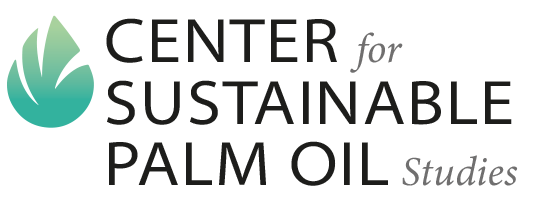
Despite major progress towards new mandatory frameworks aimed at tackling sustainability and ethical issues in supply chains coming into Europe, the EU’s ambitious legislation will see little impact if not backed up by deep and long-lasting partnerships with producing countries.
Boukje Theeuwes is Head of Policy at Solidaridad Europe. Solidaridad is an international CSO operating in over 40 countries worldwide on fair and sustainable supply chains, inspired by 50 years of solidarity with under-resourced producer communities.
Over the course of the next year, we expect the Von Der Leyen Commission, with the backing of the major groupings of the European Parliament, to make strides on European sustainability policies and ethical trading. Such steps forward, which include supporting the recent implementation of the Conflict Minerals Regulation, should form part of a comprehensive regulatory framework that includes the smart mix of measures needed to tackle human rights violations and environmental issues in international supply chains.
However, while a legislative push will pave the way for regulation in Europe it is crucial not to forget the other side of the supply chain: the producing countries whom this legislation will affect, and whose engagement will be key in ensuring that well-intended legislation actually leads to improvement for millions of small-scale miners, smallholder farmers and vulnerable workers in the global South. So while it is tempting to focus on the major trade deals and unilateral actions of the EU’s major branches, if this legislation is to bear fruit, we should not lose focus on the important work needed from Koen Doens, Director-General of International Partnerships, and that needed from DG Trade.
Partnership not diktat
This is not merely aspirational thinking or socially conscious handwringing; the simple fact is that for legislation to be effective it needs to be supported by partnerships between producing countries and the EU. Without this support, which should include capacity-building programmes, financial incentives and regional awareness-raising on the new measures, legislation will not only be ineffective and miss its goal, it could actually have negative consequences for already vulnerable producers and landscapes.
The coming into effect of the Conflict Minerals regulation this year offers a timely example. This regulation has at its heart the laudable goal of stemming the trade of tin, tantalum, tungsten and gold, when this is being used to support an armed conflict, or is the product of forced labour. Companies that import minerals into the EU will be compelled to investigate their supply chains and identify, prevent and mitigate potential adverse impacts. This is a fine piece of legislation and has the real potential to help combat abuses in informal markets. However, given its scope, the level of producing countries’ involvement, and the complex socio-economic realities therein, it is fair to say that its success will depend on the relationships developed with producing countries. It is not a silver bullet.
Take the Madre de Dios department of Peru, a region of incredible biodiversity and beauty. It is home to significant informal gold mining and plagued by environmental devastation, extortion, exploitation and a general lack of law enforcement. Such regions should be beneficiaries of the Conflict Minerals regulation, but the reaction of the Peruvian government is key. If the government chooses to tackle the informal system through a harsh crackdown of law enforcement in the region, criminalizing informal miners, this will likely fail to quell the informal market. It could in fact push it deeper into the dark, risking further environmental disaster and worsening an already bleak situation for local miners and communities involved.
Companies might also avoid sourcing from these high-risk areas, leaving miners with no choice other than to turn to informal markets and exploitative local traders to sell their gold. Disengagement with suppliers as a last resort is embedded in the regulation, after all. Yet this last resort becomes far more likely without complementary measures to tackle the underlying structural issues that are outside the scope of corporate intervention.
On the other hand, if the Peruvian government is engaged in the process throughout, supported in translating and making relevant the measures for those in the region and supported financially to help transition the Madre de Dios workers to a regulated system, and if companies are encouraged to invest in good prospects rather than abandoning bad, then the regulation may become truly impactful. This approach, involving civic society, government, as well as local and international business, is exactly the smart mix that is needed to ensure a truly sustainable and responsible supply chain.
This issue is not confined to small-scale mining, or even the wider extractives sector. Partnerships will be needed wherever we want to see changes in supply chains. Take Palm as another current example. In Indonesia and elsewhere smallholder farmers produce approximately 40% of the world’s palm oil. Smallholders currently struggle to meet the criteria for certification, and without support to reach certification, companies faced with potential legal difficulties due to a European regulation, will simply cut ties with smallholders. Losing access to the European markets, however, won’t put them out of business, or protect the rainforests around them. Smallholders will continue to sell palm oil at lower margins and with less incentive to operate sustainably, to less regulated markets such as Asia.
Bringing legislation to life, collaboratively
These examples are not unique. They exist in about every supply chain coming into Europe that you can imagine, and are a stark testament to the challenges facing the Commission if it is to succeed in its ambitious sustainability and ethical goals. The key to ensuring the success of any legislation on sustainable and inclusive supply chains is to establish partnerships with producing countries. By engaging them from the beginning, drawing them into discussions, gaining valuable insight and feedback, more impact can be achieved. Followed up with the right joint initiatives and support, this approach will pave the way for truly sustainable and inclusive supply chains, and, by fostering trust, ensure closer cooperation in future.
Solidaridad has long experience fostering such partnerships. In this we are not alone, as this recent video made with Intel, the European Partnership for Responsible Minerals (EPRM) and RBA makes clear. To reach our goals we need a smart mix of legislation, partnerships, voluntary measures and more. Legislation itself will not be enough.
By Boukje Theeuwes
Original link: https://www.euractiv.com/section/cybersecurity/opinion/without-the-right-partnerships-eu-legislation-is-dead-on-arrival/


